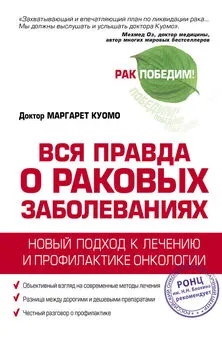Соня Любомирски - Психология счастья. Новый подход
- Название:Психология счастья. Новый подход
- Автор:
- Жанр:
- Издательство:Питер
- Год:2014
- Город:СПб.
- ISBN:978-5-496-00719-1
- Рейтинг:
- Избранное:Добавить в избранное
-
Отзывы:
-
Ваша оценка:
Соня Любомирски - Психология счастья. Новый подход краткое содержание
Легендарный бестселлер психолога Сони Любомирски – это проницательный взгляд на то, как мало мы знаем о том, что именно делает нас счастливыми и что не может этого сделать.
Почти у каждого из нас есть вера в то, что определенные достижения (брак, дети, работа, богатство) сделают нас счастливыми и что определенные неудачи или несчастья (проблемы со здоровьем, отсутствие партнера, недостаточное количество денег) сделают нас несчастными.
Такое понимание всячески подкрепляется массовой культурой и продолжает существовать, несмотря на огромное количество доказательств того, что наше благополучие не зависит от соответствия этим черно-белым принципам. Вера в мифы может иметь губительные последствия.
Опираясь на последние достижения психологии, автор развенчивает пресловутый миф о счастье и предлагает пошаговые стратегии, следуя которым можно проложить путь к полноценной жизни и повысить потенциал нашего счастья.
Подкрепленные не интуитивной, а осознанной мудростью и отстраненностью от конкретных проблем, наши следующие кризисные моменты мы сможем встретить во всеоружии; кроме того, подобные серьезные вызовы вполне реально использовать для достижения по-настоящему крупных успехов.
Психология счастья. Новый подход - читать онлайн бесплатно ознакомительный отрывок
Интервал:
Закладка:
35. Keil, C.P. (1998). Loneliness, stress, and human-animal attachment among older adults. In Wilson, C.C., and Turner, D.C., (eds.). Companion Animals in Human Health (pp. 123–34). Thousand Oaks, CA: Sage.
36. Эти исследования одиноких людей недавно собрали психологи Белла Деполо и Венди Моррис, не согласные с тем, что они называют идеологией семьи и брака: DePaulo, B.M., and Morris, W.L. (2005). Singles in society and in science. Psychological Inquiry, 16: 57–83. See also DePaulo, B. (2006). Singled Out: How Singles Are Stereotyped, Stigmatized, and Ignored, and Still Live Happily Ever After. New York: St. Martin’s Press.
37. Много этих предложений от Макгинниса, А.Л. (1979). Фактор Дружбы. Миннеаполис: Аугсбург. Магическое число «три» было предложено профессором Стэнфордского университета Лорой Карстенсен.
38. Русская поговорка.
39. Argyle, M., and Henderson, M. (1984). The rules of friendships. Journal of Social and Personal Relationships, 1: 211–37.
40. Clipman, J.M. (1999, March). A hug a day keeps the blues away: The effect of daily hugs on subjective well-being in college students. Paper presented at the Seventieth Annual Meeting of the Eastern Psychological Association, Boston.
41. В последующем исследовании Джейн Мари Клипмен дала студентам возможность подмигнуть или сделать комплимент вместо объятий. Подмигивание и похвалы также увеличивают ощущение благополучия.
42. Doehring, K.M. (1989). Relieving pain through touch. Advancing Clinical Care, 4: 32–33.
1. Ozer, E.J., and Weiss, D.S. (2004). Who develops post-traumatic stress disorder? Current Directions in Psychological Science, 13: 169–72.
2. Billings, A.G., and Moos, R.H. (1984). Coping, stress, and social resources among adults with unipolar depression. Journal of Personality and Social Psychology, 46: 887–91.
3. Carver, C.S., Scheier, M.F., and Weintraub, J.K. (1984). Assessing coping strategies: A theoretically based approach. Journal of Personality and Social Psychology, 56: 267–83.
4. Nolen-Hoeksema, S., and Morrow, J. (1991). A prospective study of depression and posttraumatic stress symptoms after a natural disaster: The 1989 Loma Prieta earthquake. Journal of Personality and Social Psychology, 61: 115–21.
5. Schut, H.A. W., Stroebe, M.S., van den Bout, J., and de Keijser, J. (1997). Intervention for the bereaved: Gender differences in the efficacy of two counselling programmes. British Journal of Clinical Psychology, 36: 63–72.
6. McQueeney, D.A., Stanton, A.L., and Sigmon, S. (1997). Efficacy of emotion-focused and problem-focused group therapies for women with fertility problems. Journal of Behavioral Medicine, 20: 313–31.
7. Lynn’s story was profiled by the Los Angeles Times: Foreman, J. (2006, January 16). “The mystery that is mourning.” Los Angeles Times, F4.
8. Tennen, H., and Affleck, G. (1999). Finding benefits in adversity. In Snyder, C.R., (ed.). Coping: The Psychology of What Works (pp. 279–304). New York: Oxford University Press.
9. Nolen-Hoeksema, S., and Davis, C.G. (2002). Positive responses to loss: Perceiving benefits and growth. In Snyder and Lopez, op. cit., 598–606. New York: Oxford University Press.
10. Taylor, S.E., Lichtman, R.R., and Wood, J.V. (1984). Attributions, beliefs about control, and adjustment to breast cancer. Journal of Personality and Social Psychology, 46: 489–502. See also Collins, R.L., Taylor, S.E., and Skokan, L.A. (1990). A better world or a shattered vision?: Changes in life perspectives following victimization. Social Cognition, 8: 263–85.
11. Обзор см. Taylor, S.E., and Armor, D.A. (1996). Positive illusions and coping with adversity. Journal of Personality, 64: 873–98.
12. Самоотчеты участников, перенесших тяжелую утрату, приводятся в Davis, C.G., Nolen-Hoeksema, S., and Larson, J. (1998). Making sense of loss and benefiting from the experience: Two construals of meaning. Journal of Personality and Social Psychology, 75: 561–74.
13. Shearer, L. (2001, September). When the friendly skies are not so friendly. Georgia Magazine, 80.
14. Affleck, G., Tennen, H., Croog, S., and Levine, S. (1987). Causal attributions, perceived benefits, and morbidity after a heart attack: An 8 year study. Journal of Consulting and Clinical Psychology, 55: 29–35.
15. Nolen-Hoeksema and Davis (2002), указ. соч., 602.
16. Tedeschi, R.G., and Calhoun, L.G. (1995). Trauma and transformation: Growing in the Aftermath of Suffering. Thousand Oaks, CA: Sage. O’Leary, V.E., and Ickovics, J.R. (1995). Resilience and thriving in response to challenge: An opportunity for a paradigm shift in women’s health. Women’s Health: Research on Gender, Behavior, and Policy, 1: 121–42.
17. Есть много описаний этой работы, лучший обзор см. Tedeschi, R.G., and Calhoun, L.G. (2004). Posttraumatic growth: Conceptual foundations and empirical evidence. Psychological Inquiry, 15: 1–18.
18. O’Leary & Ickovics (1995), указ. соч.
19. Там же.
20. Langer, L.L. (1990). Holocaust Testimonies: The Ruins of Memory. New Haven: Yale University Press, p. 59. Quoted in O’Leary and Ickovics (1995), op. cit.
21. Engh, A.L., Beehner, J.C., Bergman, T.J., Whitten, P.L., Hoffmeier, R.R., Seyfarth, R.M., and Cheney, D.L. (2006) Behavioural and hormonal responses to predation in female chacma baboons (Papio hamadryas ursinus). Proceedings of the Royal Society B, 273: 707–12. Dreilinger, R. (2006, April). “No monkey, no cry.” Observer, 12.
22. Pennebaker, J.W., and O’Heeron, R.C. (1984). Confiding in others and illness rate among spouses of suicide and accidental-death victims. Journal of Abnormal Psychology, 93: 473–76.
23. Levy, S.M., Herberman, R.B., Whiteside, T., Sanzo, K., Lee, J., and Kirkwood, J. (1990). Perceived social support and tumor estrogen/progesterone receptor status as predictors of natural killer cell activity in breast cancer patients. Psychosomatic Medicine, 52: 73–85. See also Kiecolt-Glaser, J.K., Dura, J.R., Speicher, C.E., Trask, O.J., and Glaser, R. (1991). Spousal caregivers of dementia victims: Longitudinal changes in immunity and health. Psychosomatic Medicine, 53: 345–62.
24. Spiegel, D., Bloom, J.R., Kraemer, H.C., and Gottheil, E. (1989). Effect of psychosocial treatment on survival of patients with metastatic breast cancer. Lancet, 2: 888–91.
25. Gilligan, C. (1982). In a Different Voice: Psychological Theory and Women’s Development. Cambridge, MA: Harvard University Press.
26. Rook, K.S. (1984). The negative side of social interaction: Impact on psychological well-being. Journal of Personality and Social Psychology, 46: 1097–1108. Windholz, M.J., Marmar, C.R., and Horowitz, M.J. (1985). A review of the research on conjugal bereavement: Impact on health and efficacy of intervention. Comprehensive Psychiatry, 26: 433–47.
27. Janoff-Bulman, R. (1992). Shattered Assumptions: Towards a New Psychology of Trauma. New York: Free Press.
28. Lerner, M.J. (1980). The Belief in a Just World. New York: Plenum.
29. Цитаты взяты из Davis et al. (1998), указ. соч.
30. Там же.
31. Bower, J.E., Kemeny, M.E., Taylor, S.E., and Fahey, J.L. (1998). Cognitive processing, discovery of meaning, CD4 decline, and AIDS-related mortality among bereaved HIV-seropositive men. Journal of Consulting and Clinical Psychology, 66: 979–86.
32. Прекрасный обзор этой работы см. Pennebaker, J.W. (1997). Opening Up: The Healing Power of Expressing Emotions. New York: Guilford.
33. Обзор см. Pennebaker, J.W. (1997). Writing about emotional experiences as a therapeutic process. Psychological Science, 8: 162–66. Frattaroli, J. (2006). Experimental disclosure and its moderators: A meta-analysis. Psychological Bulletin, 132: 823–65.
34. Pennebaker, J.W., Mayne, T.J., and Francis, M.E. (1997). Linguistic predictors of adaptive bereavement. Journal of Personality and Social Psychology, 72: 863–71.
35. Pennebaker, J.W., and Seagal, J.D. (1999). Forming a story: The health benefits of narrative. Journal of Clinical Psychology, 55: 1243–54. Quote appears on p. 1244.
36. Seligman (1990), указ. соч.
37. McCullough, M.E., and Witvliet, C.V. (2002). The psychology of forgiveness. In Snyder and Lopez, op. cit., 446–58.
38. McCullough, M.E., Pargament, K.I., and Thoresen, C.T. (eds.). (2000). Forgiveness: Theory, Research, and Practice. New York: Guilford.
39. McCullough, M.E., Rachal, K.C., Sandage, S.J., Worthington, E.L., Jr., Brown, S.W., and Hight, T.L. (1998). Interpersonal forgiving in close relationships. II. Theoretical elaboration and measurement. Journal of Personality and Social Psychology, 75: 1586–1603.
40. Прекрасный обзор этого исследования см. McCullough and Witvliet (2002), указ. соч., McCullough, M.E. (2001). Forgiveness: Who does it and how do they do it? Current Directions in Psychological Science, 10: 194–97.
41. Hebl, J.H., and Enright, R.D. (1993). Forgiveness as a psychotherapeutic goal with elderly females. Psychotherapy: Theory, Research, Practice, Training, 30: 658–67.
42. Worthington, E.L., Jr., Sandage, S.J., and Berry, J.W. (2000). Group interventions to promote forgiveness: What researchers and clinicians ought to know. In McCullough, M.E., Pargament, K.I., and Thoresen, C.T. (eds.). Forgiveness: Theory, Research, and Practice (pp. 228–53). New York: Guilford. Harris, A.H. S., and Thoresen, C.E. (2006). Extending the influence of positive psychology interventions into health care settings: Lessons from self-efficacy and forgiveness. Journal of Positive Psychology, 1: 27–36.
43. Karremans, J.C., Van Lange, P.A. M., and Holland, R.W. (2005). Forgiveness and its associations with prosocial thinking, feeling, and doing beyond the relationship with the offender. Personality and Social Psychology Bulletin, 31: 1315–26.
44. Модификация упражнения, предложенного Мартином Селигманом и Трейси Стин.
45. Witvliet, C.V., Ludwig, T.E., and Vander Laan, K.L. (2001). Granting forgiveness or harboring grudges: Implications for emotion, physiology, and health. Psychological Science, 12: 117–23.
46. См. http://www.forgivenessday.org/hero.htm, примеры таких «героев прощения», в том числе известных и обычных людей.
47. McCullough, M.E., Worthington, E.L., and Rachal, K.C. (1997). Interpersonal forgiving in close relationships. Journal of Personality and Social Psychology, 73: 321–36.
48. Shapiro, D.L. (1991). The effects of explanations on negative reactions to deceit. Administrative Science Quarterly, 36: 614–30.
49. McCullough et al. (1997), op. cit., McCullough et al. (1998), указ. соч.
50. McCullough, M.E., Bellah, C.G., Kilpatrick, S.D., and Johnson, J.L. (2001). Vengefulness: Relationships with forgiveness, rumination, wellbeing, and the Big Five. Personality and Social Psychology Bulletin, 27: 601–10.
Читать дальшеИнтервал:
Закладка:









